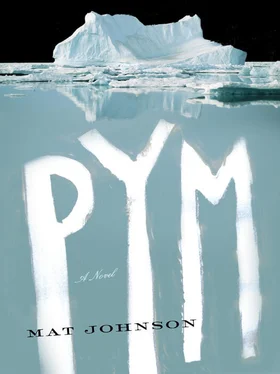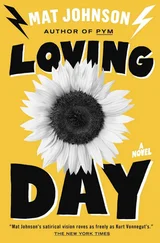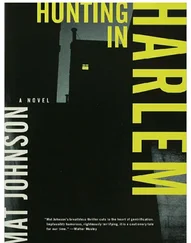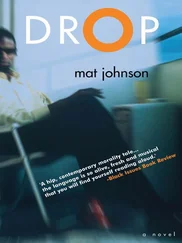UPON my return to the United States a few months ago, after the extraordinary series of adventures in the South Seas and elsewhere, which you can read about on the pages that follow, I found myself in the company of several gentlemen in Richmond, Va., who were deeply interested in the regions I had visited, and who were constantly urging it upon me, as a duty, to give my narrative to the public. Yet here our intentions diverge (at crossroads travelers may meet, then move on in different, at times opposing directions). For sociological and historical purposes they wanted me to tell my story, to enlighten them about my experience. I had several reasons, however, for declining this request, some of which concerned me alone, others less so. One issue which gave me pause was that, since I took no pictures or recordings of consequence and barely cracked my laptop during the greater portion of the time in question, I might not be able to write solely from memory an account so airtight and accurate as to leave no doubt of its truth. Another reason was that the incidents to be retold were admittedly so outrageous that, without having proof (except a single corpse who was in life a drunken, two-hundred-year-old pickle), I could only hope for the trust of my audience, and specifically those of my past associates who have had reason, over the years, to have faith in my sincerity. I knew the chances were that the public at large would regard what I will now attempt to tell as little more than the rant of a paranoid. Adding to this, I must admit an insecurity in my own abilities as a writer, that this was one of the principal causes that prevented me from complying with the suggestion of my advisers sooner .
Among those brothers outside of Virginia who expressed the greatest interest in my story, or really the part which related to my experiences in the Antarctic region, was Mr. Johnson, at the time an assistant professor of language and literature at Bard College, a historically white institution, in the town of Annandale, along the Hudson River. He strongly advised me (to the point of discomfort) to prepare at once a full record of what happened, and trust to the shrewdness and common sense of the folks to figure it out. To place it in nonthreatening story form for those who, even if they don’t believe my story, would be willing to still take a bite and try to swallow it nonetheless. It was also Mr. Johnson’s decision to present these revelations under the guise of fiction, and with this strategy I agree. For one, doing so provides a level of synchronicity with the seminal text that began my journey. Also, it keeps me from being sued by the ____ Cola corporation, and not being sued is always a good thing. And there are more ephemeral motivations as well. In this age when reality is built on big lies, what better place for truth than fiction?
This exposé being made, it will be obvious to those who would compare the few works of Mr. Johnson where his brief assistance in this narrative begins and ends. Regardless, it should be emphasized that I have approved the following manuscript and in thought, intent, and theory I claim it as my own .
C. JAYNES. Philadelphia, January 19, 2009
ALWAYS thought if I didn’t get tenure I would shoot myself or strap a bomb to my chest and walk into the faculty cafeteria, but when it happened I just got bourbon drunk and cried a lot and rolled into a ball on my office floor. A couple days of this and I couldn’t take it so I ended classes a week early and checked into the Akwaaba Bed and Breakfast in Harlem to be among my own race and party away the pain. But mostly I just found myself back in that same ball some more, still on the floor, just at a more historically resonant address. My buddy Garth Frierson, he’d been laid off about six months before, and was nice enough to drive all the way from Detroit to help a childhood friend. This help mostly consisted of him sitting his bus driver ass on my rented bed, busting on me until I had enough shame to get off my own duff and try to make something of myself again.
By then the term was over, graduation done, campus vacant. I didn’t want to see anybody. The only things worse than the ones who were happy about my dismissal were the ones that weren’t. The sympathy, the condolences. It was all so white. I was the only black male professor on campus. Professor of African American Literature. Professional Negro. Over the years since my original hire I pushed away from that and insisted on teaching American literature in general, following a path toward my passion, toward Edgar Allan Poe. Specifically, I offered the course “Dancing with the Darkies: Whiteness in the Literary Mind” twice a year, regardless of enrollment. In regard to the number of students who chose to attend the seminar, I must say in my defense that the greatest ideas are often presented to empty chairs. However, a different theory on proper class size was cited in my denial letter from the president, and given as a reason to overturn the faculty’s approval.
Curing America’s racial pathology couldn’t be done with good intentions or presidential elections. Like all diseases, it had to be analyzed at a microscopic level. What I discovered during my studies in Poe’s and other early Americans’ texts was the intellectual source of racial Whiteness. Here, in these pages, was the very fossil record of how this odd and illogical sickness formed. Here was the twisted mythic underpinnings of modern racial thought that could never before be dismantled because we were standing on them. You don’t cure an illness by ignoring it or just fighting the symptoms. A Kleenex has never eradicated a cold. I was doing essential work, work affecting domestic policy, foreign policy, the entire social fabric of the most powerful nation of the world. Work that related directly to the way we lived our daily lives and perceived reality itself. Who cared if a bunch of overprivileged nineteen-year-olds with questionable hygiene could be bothered to rise for the 8 A.M. class? Who cared if I chose to not waste even more precious research time attending the toothless Diversity Committee?
“Just get your books, dog. And get out of there. Pack up your place, focus on what you can do. You want, you can come back with me to Detroit. It’s cheap, I got a big crib. Ain’t no jobs, but still.” Garth and I drove up the Taconic in the rain. I was still drunk, and the wet road was like lines on a snake’s back and my stomach was going to spill. Even drunk, I knew any escape plan that involved going to Detroit, Michigan, was a harbinger of doom. Garth Frierson was my boy, from when we were boys, from when I lived in a basement apartment in Philly and he lived over the laundromat next door. Garth didn’t even ask how many books I had, but he must have suspected.
Because I had books. I had books like a lit professor has books. And then I had more books, finer books. First editions. Rare prints. Copies signed by hands long dead. Angela walked out on me a long time ago and my chance of children walked with her, but I had multiplied in my own way. I’d had shelves built in my office for these books, shelves ten feet tall and completely lining the drywall.
The campus was dead. A vacant compound hidden from the road by darkness and hulking pines. The gravel parking lot was empty, but I made Garth park in the spot that said PRESIDENT — VIOLATORS WILL BE TOWED ON PRINCIPLE. When you get denied tenure at a college like this — intimate, good but not great — your career is over. A decade of job preparation, and no one else will hire you. If you haven’t published enough, people assume tenure denial means you never will. If you have published and were still denied, people assume you’re an asshole. Nobody wants to give a job for life to an asshole. And they didn’t have to in this economy. Outside of a miracle, after denial I would be lucky to scrounge up adjunct teaching at a community college somewhere cold, barren, and far from the ocean. A life of little health insurance, bill collector calls, and classrooms with metal detectors, all compliments of this college president, Mr. Bowtie. The least I could do was shit in his space for an hour.
Читать дальше












